
Bioengineering department adds single-cell expert via CPRIT grant
The little things of life mean a great deal to Julea Vlassakis, who will bring her study of protein complexes and their role in cancer proliferation to Rice University this year.

Bioengineering department adds single-cell expert via CPRIT grant
The little things of life mean a great deal to Julea Vlassakis, who will bring her study of protein complexes and their role in cancer proliferation to Rice University this year.

Feds back probe of understudied gut nervous system
Rice University neurobiologist Rosa Uribe has won a five-year, $2 million R01 grant from the National Institutes of Health to study how the enteric nervous system develops.

B.J. Fregly, a professor of mechanical engineering and bioengineering and a CPRIT Scholar in Cancer Research, has been named a fellow of the American Society of Mechanical Engineers (ASME).

Rice, Baylor part of research effort to advance genome editing
Researchers from Rice University and Baylor College of Medicine are part of a national effort to accelerate genome-editing research and develop gene-editing technologies and therapies.

Cancer ‘guardian’ breaks bad with one switch
A mutation that replaces a single amino acid in a potent tumor-suppressing protein makes it prone to nucleating amyloid fibrils implicated in many cancers as well as neurological diseases.

Cerium sidelines silver to make drug precursor
Rice scientists have developed a simplified method to make fluoroketones, a drug precursor that typically requires an expensive silver catalyst.
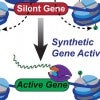
New CRISPR tech targets human genome’s complex code
Rice bioengineers harness the CRISPR/Cas9 system to program histones, the support proteins that wrap up and control human DNA, to manipulate gene activation and phosphorylation. The new technology enables innovative ways to find and manipulate genes and pathways responsible for diseases.

Rice chemist, alums named to Forbes 30 Under 30
Rice University chemist Julian West and four alumni have been named to the 10th annual Forbes 30 Under 30.

Vitamin boosts essential synthetic chemistry
Inspired by light-sensing bacteria that thrive near hot oceanic vents, synthetic chemists use vitamin B12 to catalyze valuable hydrocarbons known as olefins, or alkenes, useful precursor molecules for the manufacture of drugs and agrochemicals.
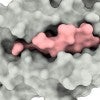
Once-discounted binding mechanism may be key to targeting viruses
Researchers detail subtle stabilizing effects in cells’ ability to recognize coronaviruses that compromise the immune system. The discovery could lead to new targets to prevent disease.
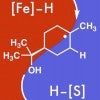
In a hurry to develop drugs? Here’s your cHAT
Rice University scientists develop cHAT to simplify the reduction of alkenes to more useful intermediate molecules for drugs and other useful chemical compounds.
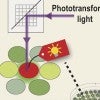
SPOTlight supercharges cell studies
Researchers develop a new method to isolate specific cells, and in the process find a more robust fluorescent protein.
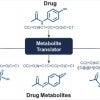
Deep learning gives drug design a boost
A computational tool created at Rice University may help pharmaceutical companies expand their ability to investigate the safety of drugs.
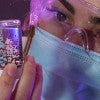
Heart attack damage reduced by shielded stem cells
Bioengineers and surgeons from Rice University and Baylor College of Medicine have shown in rodents that a four-week shielded stem cell treatment can reduce damage caused by a heart attack.

NSF renews Rice biological physics center
$12.9 million in funding backs Center for Theoretical Biological Physics research into mysteries at the intersection of biology and physics.